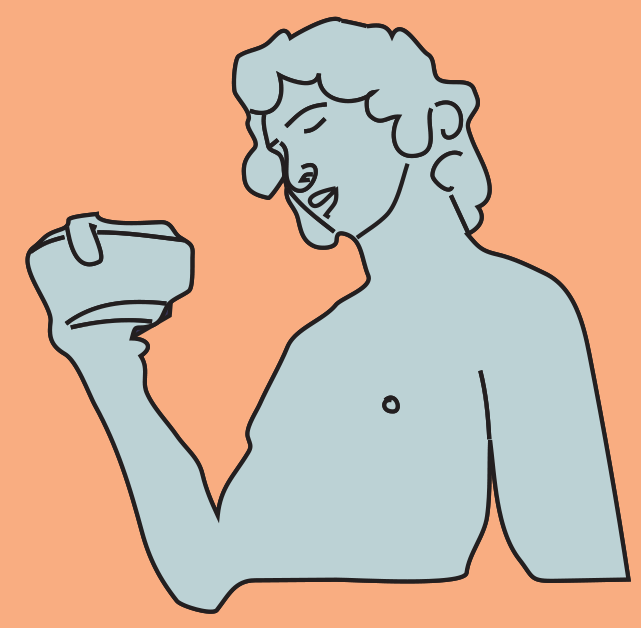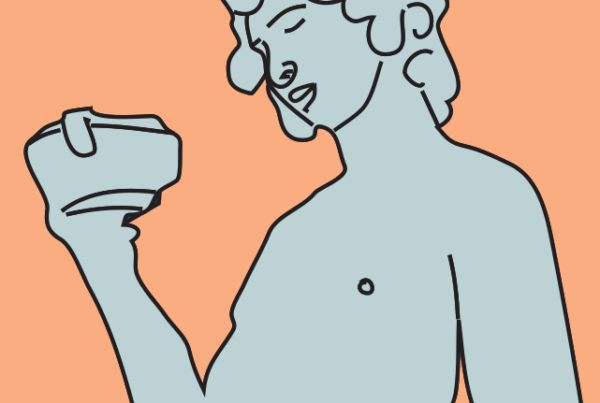

What does it mean for something to be in one’s nature? Oftentimes, laymen refer to this as something inherent in your genes or a stable characteristic you show. After studying psychology for three years, my biggest takeaway is that people are generally malleable. In my opinion, the phrase ‘you can’t teach an old dog new tricks’ is mostly a myth. Naturally, I believe there is a consistent, stable core within one’s personality, but even that core can be changed with the proper motivation and a lot of effort.
Maybe it’s because I grew up in an Asian household and, for half my life, in an Asian society. A common narrative ingrained in these societies is that all your successes and failures depend almost exclusively on the amount of effort you put in or an inherent, stable characteristic. For example, if you do well in an exam it is because you worked hard for it or you’re intelligent and if you fail the exam, you did not put in enough effort or you’re not intelligent enough. They focus mainly on an internal locus of control and any reasoning indicating an external locus of control is seen as a weak excuse. Perhaps, this mindset of people having stable internal traits contribute to the stigma surrounding mental health in Asia. As in an article previously written by Zhen Cong, people in Asia tend to view mental health issues as a person being ‘weak’. Weakness could be taken to be a stable trait that, once assigned to a person, is hard to shake off. This mentality might be one of the strongest influencing factors that dissuade people from seeking mental health help. In addition, the idea of stable inherent traits could push forth the notion that people with poor mental health will never be ‘fixed’ and cannot change to have a higher quality of life. This might contribute to the resistance against seeking mental health assistance, since they view it as a futile attempt.
I think the main limitations to change are the ones we place on ourselves through assuming an incremental (fixed) mindset, and through the popular notion that a person can be too old to change their lives or learn something new. It’s amazing the amount of change one can achieve if they put themselves to the task. In psychology, a lot of emphasis is placed on brain plasticity and critical periods of development when the individual is most malleable. While this may be true, even if one’s cognitive functions are on a decline in late adulthood, one can still learn new skills and change their lifestyle entirely (e.g. as seen when someone experiences a ‘mid-life crisis’).
So, what does it mean for something to be in one’s nature? I see it as a tendency one has, whether inherent or learned or a combination of both. However, that trait or characteristic does not have to be the person’s defining point and it does not have to be a permanent element in the person’s essence. We are adaptable and we are built to change when needed.

What does it mean for something to be in one’s nature? Oftentimes, laymen refer to this as something inherent in your genes or a stable characteristic you show. After studying psychology for three years, my biggest takeaway is that people are generally malleable. In my opinion, the phrase ‘you can’t teach an old dog new tricks’ is mostly a myth. Naturally, I believe there is a consistent, stable core within one’s personality, but even that core can be changed with the proper motivation and a lot of effort.
Maybe it’s because I grew up in an Asian household and, for half my life, in an Asian society. A common narrative ingrained in these societies is that all your successes and failures depend almost exclusively on the amount of effort you put in or an inherent, stable characteristic. For example, if you do well in an exam it is because you worked hard for it or you’re intelligent and if you fail the exam, you did not put in enough effort or you’re not intelligent enough. They focus mainly on an internal locus of control and any reasoning indicating an external locus of control is seen as a weak excuse. Perhaps, this mindset of people having stable internal traits contribute to the stigma surrounding mental health in Asia. As in an article previously written by Zhen Cong, people in Asia tend to view mental health issues as a person being ‘weak’. Weakness could be taken to be a stable trait that, once assigned to a person, is hard to shake off. This mentality might be one of the strongest influencing factors that dissuade people from seeking mental health help. In addition, the idea of stable inherent traits could push forth the notion that people with poor mental health will never be ‘fixed’ and cannot change to have a higher quality of life. This might contribute to the resistance against seeking mental health assistance, since they view it as a futile attempt.
I think the main limitations to change are the ones we place on ourselves through assuming an incremental (fixed) mindset, and through the popular notion that a person can be too old to change their lives or learn something new. It’s amazing the amount of change one can achieve if they put themselves to the task. In psychology, a lot of emphasis is placed on brain plasticity and critical periods of development when the individual is most malleable. While this may be true, even if one’s cognitive functions are on a decline in late adulthood, one can still learn new skills and change their lifestyle entirely (e.g. as seen when someone experiences a ‘mid-life crisis’).
So, what does it mean for something to be in one’s nature? I see it as a tendency one has, whether inherent or learned or a combination of both. However, that trait or characteristic does not have to be the person’s defining point and it does not have to be a permanent element in the person’s essence. We are adaptable and we are built to change when needed.


